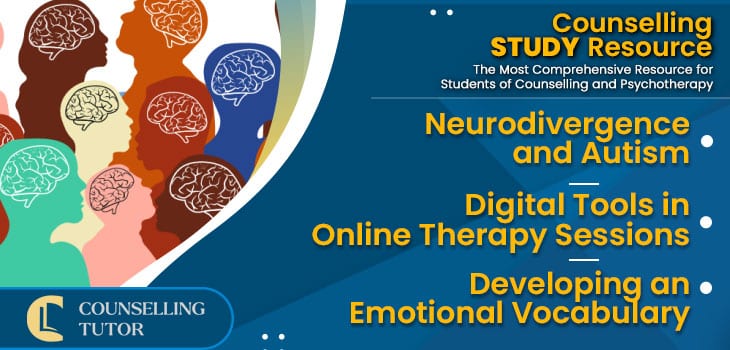See Counselling Skills Used in Real Sessions by Qualified Therapist
Real Sessions – Real Presentations – Real Skills
Gain the competence and confidence to use counselling techniques effectively!

In Episode 315 of the Counselling Tutor Podcast, your hosts Rory Lees-Oakes and Ken Kelly take us through this week’s three topics:
All clients deserve to feel seen and understood within the therapy room. In this section, Rory and Ken discuss neurodivergence and autism in session:

Real Sessions – Real Presentations – Real Skills
Gain the competence and confidence to use counselling techniques effectively!
In this week’s ‘Practice Matters’, Rory speaks with Ellie Finch about using digital tools in online therapy sessions.
The key points of this discussion include:

On-demand access to a rich lecture library covering theory, skills, and professional development for counselling students—Mapped to the UK awarding body criteria
“The Student Library has been BRILLIANT, I can’t recommend it enough!
It has been a lifeline in helping me prepare for practice and my first clients. If you’re considering it, go-for-it, it’s absolutely worth it!”
Kelly – Graduated and now in practice.
It’s a skill to be able to put a name to different emotions, and it’s a skill that can help a client to better understand their own emotions. In this section, Rory and Ken discuss why developing an emotional vocabulary is important:
Feelings Wheel

Get on-demand Certified CPD that is implementable in your practice
